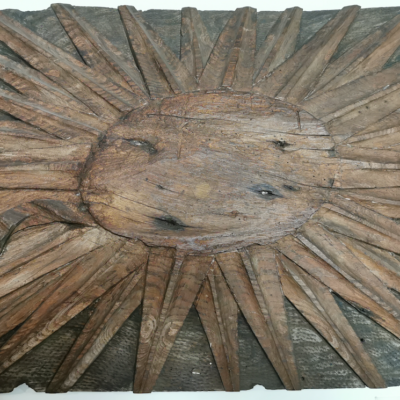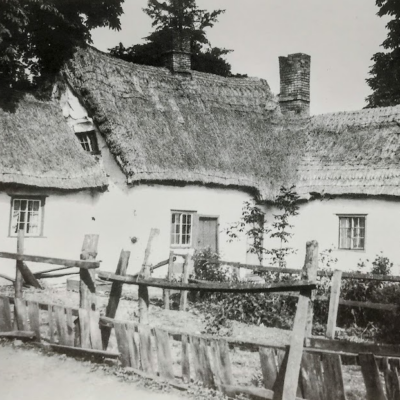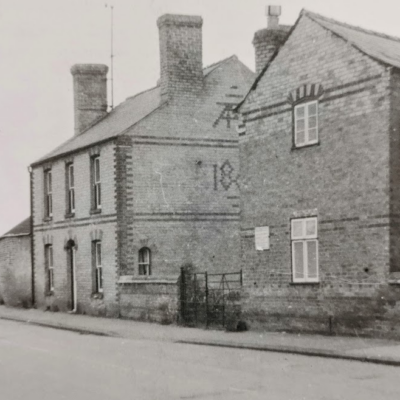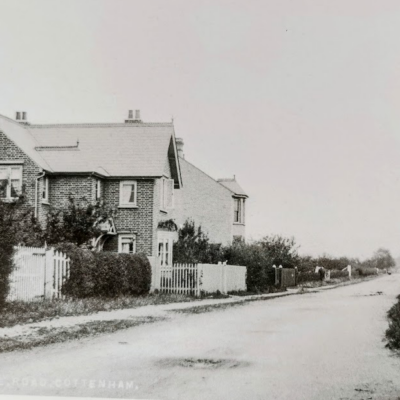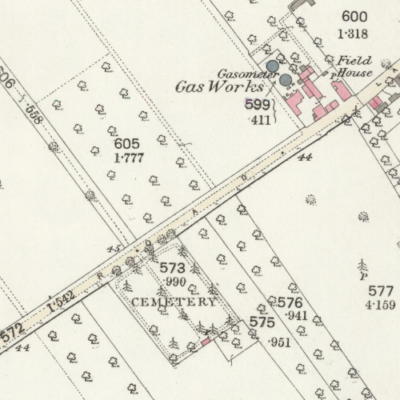Search by topic
- archaeology
- Building of Local Interest
- charity
- church
- crime
- dressmaker
- fire
- Great Eastern Railway
- Listed building
- Mapping Relief
- medieval
- oral history
- poverty
- Public House
- Rattee & Kett
- Religious House
- Roman
- scholar
- school
- Then and Now
- tudor
- women
- work
- world war one
- world war two
Search by text
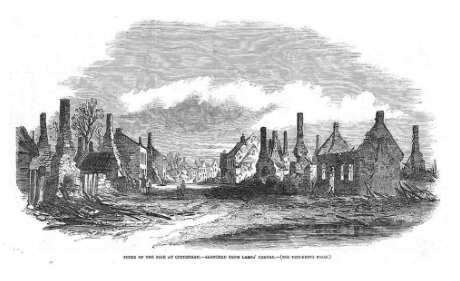 Cottenham Fire - London Illustrated News 13.4.1850 - view of High Street from Lamb Corner
Cottenham Fire - London Illustrated News 13.4.1850 - view of High Street from Lamb CornerFire at Cottenham – April 1850
History of 1850 Cottenham Fire
Wikipedia :
Cottenham houses have a mix of architectural styles because few houses have survived the numerous fires which have destroyed most of the older buildings. On 29 April 1676 a fire destroyed over half of the buildings in the village, over a hundred houses. Only two dwellings from before 1676 survive today: 11 High Street and 278 High Street. The fire that occurred on 4 April 1850 is known as the Great Fire, and started on the High Street. Forty to fifty cottages burnt down, as well as the Black Horse and White Horse inns and the Wesleyan Chapel, which was housed in a barn on what is now Telegraph Street. Smaller fires were recorded in 1827, 1847 and 1852, each of which destroyed at least ten dwellings.
See Francis Garrett, Cottenham Ablaze:
The fire broke out between 204 and 206 High Street. the fire could be seen from Castle Hill in Cambridge. A strong wind from WSW carried the fire to the properties of Goode, Graves, Richard Spackman, Watson, Papworth, Robert Ivatt and Timothy Morlin. Only 220 High Street was saved.
On the opposite side of the street, the fire destroyed the Black Horse Inn and the premises of Chivers the Blacksmith. The thatched house of Mrs Smith the miller and Richard Norman‘s brewery were destroyed. The White Horse Inn and Edward Ivatt’s new house in Corbett Street were gutted.
The flames crossed the High Street and set light to the premises of John Chivers and then premises in Telegraph Street. It finally stopped at the chapels in Telegraph Street.
London Illustrated News 13th April 1850
GREAT FIRE AT COTTENHAM.—FORTY FARMS BURNT. The village of Cottenham was, on Thursday night week, the scene of one of the largest conflagrations that has ever been known in Cambridgeshire. The flames were distinctly visible for miles around. The fire, which was the work of an incendiary, was first seen about eight o’clock in Cambridge. It was first discovered in the rear of the farm premises occupied by Mr. Thomas Graves, and directly in the direction of the wind, which was at the time blowing a stiff gale from S.W. by W. The inflammable nature of the materials in the yard soon caused the fire to spread with the most fearful rapidity; and in a short space of time the whole of the premises, the fire being assisted in its devouring progress by the wind, were in a complete mass of flame. The whole of the left-hand side as one enters from Cambridge up to where the fire commenced, consists, for the most part, of farm-houses and buildings. Long before Mr. Graves’s premises were consumed, the fire communicated with those adjoining. The flames at this time began to assume a most awfully grand appearance. All human exertions were at once seen to be useless, and the owners were obliged passively to look on and behold the destruction of their property. The flames spread from farm to farm, all of them being reduced to ashes. On the opposite side of the road the flames consumed the Black Horse Inn and all the premises. This house stands at a comer, at the turning towards Cottenham Church. The wind continued to blow sharply, and the flames driving all before them attacked the premises of Mr. Chivers, and though the engines had arrived from Cambridge, they were of no use. The fire then attacked the houses of Mr. Smith and the White Horse. The whole of the premises of the former, with the exception of the house, were consumed, while the destruction of the latter was complete. The premises of Mr. Pain were also consumed, leaving only the house. There is a turning at this place to the right as one goes, leading down to another part of the village. On the right hand the premises are occupied by Mr. C. Chivers and Mr. Everett, and on the left by Mr. Watson, the whole of whose occupations are destroyed. Proceeding onwards to the right, the fire attacked the homesteads of Messrs. Watson, Papworth, and Everett, which, with the dissenting chapel, fell victims to the flames. In a straight direction the fire spread to the occupation of Mr. Ivatt, which was completely annihilated. In its progress it consumed a number of cottages and small occupations, and finally was got under at one occupied by Hopkins. The loss is enormous. The vile act of the incendiary has in this instance caused the most heartrending misery. Numbers of persons are not only thrown out of employ, but are dependent upon charity for food and shelter, whilst the miscreant who has caused the calamity remains undiscovered. The following is list of the farm-houses and premises destroyed ;—Mr. Thomas Graves, F. Goode, house standing; Spackman, Watson, Papworth, James Ivatt, house left; Chivers, Everett, the Black Horse ; James Chivers, Smith, house left; the White Horse, Pain, house left, all in the main street. In the back street, Robert Watson, Papworth, Everett, and the dissenting chapel. The following have had their houses destroyed:—Spackman, R. Ivatt, Rayment, Moreland, E. Rowell, Cuttress, A. Norman, Haird, Todd, T. Chivers, J. Chivers, Everett (tailor), Jacob Smith, Watson, W. Papworth, Emmerson, J. Everett, Thurston, Edmund Ivatt, Elson, John Smith, Hawkins, Mary Watson. Total loss nearly £100,000. Besides these, there are between forty and fifty cottages destroyed. The losses will fall heavy on the Norwich Union and the Farmers’ Fire Insurance Offices to the amount of about £14,000. The space traversed by the fire was very great. It seemed if half the village had been laid in ruins ; and yet the fire had been very capricious in its course, for here and there was to be seen a house standing almost uninjured, in the very midst of black and smoking ruins. The labourers worked willingly and well, so long as a chance of doing any good remained, but their efforts, aided as they were before long by the gownsmen from Cambridge, were manifestly unavailing, that people at last stood in helpless and despairing inaction. Farm after farm, cottage after cottage, fell before the flames; and by three o’clock in the morning, when farther immediate danger might be said to be over, the awful destruction was completed. Happily, however, no human lives were lost; nor did any horses or cattle fall victims to the flames. A quantity of poultry pigeons, and good many pigs, were destroyed but all the horses and neat stock were removed out of harm’s way. Of coarse, numbers of poor families have been rendered homeless, and many of them have lost all their little store of furniture: we need hardly say that these have been cared for by their more fortunate neighbours, as well as circumstances would allow.
Cambridge Independent Press – Saturday 6/4/1850
ANOTHER ALARMING AND EXTENSIVE FIRE AT COTTENHAM. (From Own Reporter) On Thursday night last, the village of Cottenham was visited by one of those awful and dire catastrophes which of late have been so prevalent in this county, we mean that of fire. About eight o’clock the fire was first discovered, and had assistance been at hand it might have been extinguished with comparatively little loss. Thursday night will long be looked upon as the night which brought trouble and devastation upon the village and its inhabitants, and yesterday a sort of sepulcral silence seemed to reign among the villagers. Thousands of people visited the smouldering ruins, and expressed their indignation that such desolation should caused by the hand of some vile incendiary; and that it was an incendiary there can no doubt; in fact we had it from Mr. Goode himself, the owner of the farm on which the fire originated, that it was almost impossible for the fire to have been caused otherwise than wilfully. Some notion may be formed of the magnitude of the fire when we state that at Histon, a distance of two miles and a half, the street was vividly illuminated that any one might see to read the smallest type. In Cambridge, hundreds people flocked to Castle Hill where the flames and the people endeavouring to put out the fire were distinctly visible. From some neglect or other, the engines from Cambridge were not sent for until about half-past ten, nearly two hours after the alarm was given, when they were immediately despatched. The night was boisterous, and the wind exceedingly strong, and this accounts for the enormous amount of property that has been consumed, for great pieces of burning thatch were carried by the wind to the opposite side of the way, and the roofs being mostly thatched, they immediately caught fire, and were fanned by the wind into large sheets of burning flame, and thus spreading from house to house, the villagers supposed that the whole of Cottenham must have been burned to the ground; but this happily proved not be the case, for the wind partially abated about half past two, and the fire was got under. From what we can gather from the many scattered reports, it seems the fire originated as follows:—The farms of Mr. Goode and Mr. Graves nearly adjoin each other, a small space between them being filled up with a considerable quantity of straw, and, upon the assertion of the surrounding neighbours and the owners themselves, this could not possibly have taken fire accidentally, but must necessity have been the act of an incendiary; and surely, if mischief were the object of the dastardly criminal, he must have been well satisfied with the horror and woe he has spread through the village. We will now proceed to give an account of the progress of the fire from its first breaking out, as we had it from an eye witness, resident in Cottenham for more than twenty years. The fire first commenced about eight o’clock, on the farm of Mr. Freeman Goode, miller, and was soon carried by the wind to the adjoining stacks of Mr. Thomas Graves, and in the course of a few minutes the whole of the premises, out-houses, and farm-yards were in a blaze; the fire then, carried by the wind, caught hold of the house of Mr James Olivers, the Black Horse, which stood near to a row of thatched houses, occupied by Mr. Chivers, blacksmith; Mrs. Smith, miller; Mr. W. Haird, auctioneer; and Mr. Norman, brewer—all of which became food for the fire, with the exception Mr. Norman’s dwelling-house, but his brewery was burned, and eighty barrels of beer destroyed. The flames having so completely devastated this part the village, again crossed over to the opposite side, and ignited the dwelling of Mr. Thurston, basket-maker, and a new house which has been finished but two days, the property of Mr. Edward lvatt; and this presents a very singular appearance, the inside having been completely gutted, while the bare walls are left standing; this, we are informed was not insured. Three small cottages then became ignited, inhabited by John Smith, labourer ; Ann Howlett, carrier; and James Hopkins; and a row of five more cottages, the property of Mr. Edward Addow Norman, situated in Back-lane. The flames then crossed to the premises of Mr. John Chivers, wheelwright and farrier; Mr. Everett, tailor; and Mr. Jacob Smith; and crossing again, ignited the farms and premises of John Watson. William Papworth, and William Everett, all of which were entirely consumed. At this point it may be as well to state that the greatest praise due to the gentlemen of the University who were present, and who, by their unwearied exertions, saved a large amount of property by pulling down house which intervened. Excitement then became great on behalf of the Wesleyan Chapel, and the greatest efforts were made to save it; all attempts, however, proved useless, and that also became a victim to the fury of the flames. This was nearly the last of the fire, for after it had burned down a row of small houses, it terminated at the cottage of James Hopkins, in Market-street. Never in the course of our lives do we recollect to have witnessed so melancholy or such a soul-sickening sight— farms and farm-yards, which had been the pride and boast of the farmer, cottages and gardens which have been the homes of the labourer, all bear now the same dull, monotonous, black appearance; and cause an involuntary shudder as we view the dark and ashy waste before us.
The property, we are glad say, is mostly insured; though we believe that last summer the greater part of the Cottenham property was not insured all, none of the Offices at that time accepting policies, owing to the prevalence of incendiarism, and in consequence the great fire which occurred there in 1848.
Engines from the following Offices were present:— Norwich Union, Royal Farmers’, Phoenix, Sun, and the Cottenham engine, but we believe they were of little use, owing to the extreme windiness of the night.
To give any accurate statement of the amount of damage done would be almost impossible at present; but from good authority we hear that the losses must be considerably over £20,000., a great part of which will be borne by the Royal Farmers.
The following is a list of persons whose property has been burned: — Graves, Goode, Spackman, Papworth, R. Ivatt, Rayment, Moreland, J. Chivers, S. Chivers. Mrs. Smith, E. Rowell, Cuttress, Norman, Haird, Todd, T. Chivers, J. Chivers, Everett (tailor), Jacob Smith, Watson, W. Papworth, Emmerson, J. Everett, Thurston, Edward Ivatt, Elson, John Smith, Hawkins, Mary Watson, besides a few more poor whose names we were unable ascertain.— Wesley Chapel was also destroyed.
Contribute
Do you have any information about the people or places in this article? If so, then please let us know using the Contact page or by emailing capturingcambridge@
License
This work is licensed under CC BY-NC-SA 4.0







